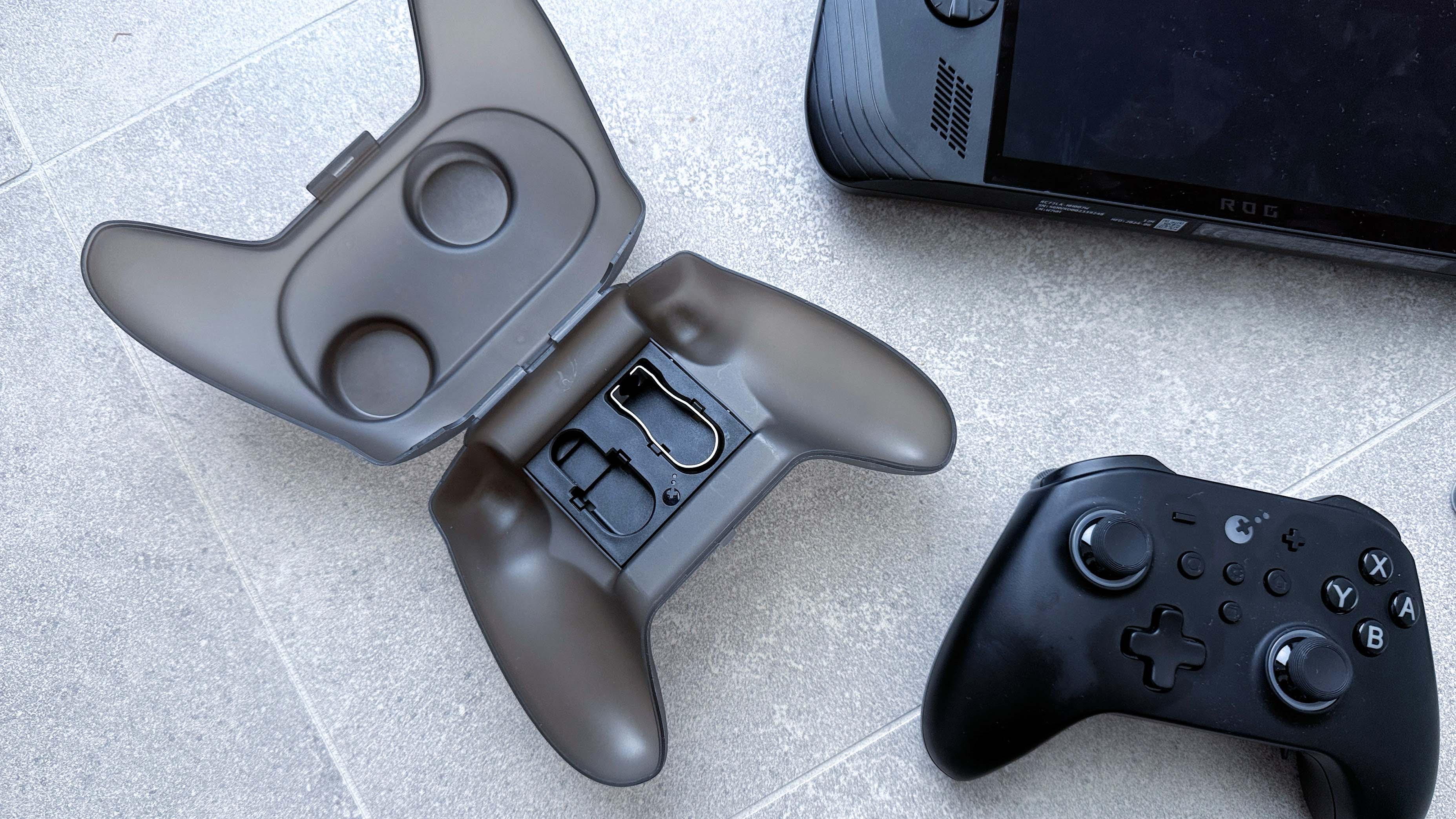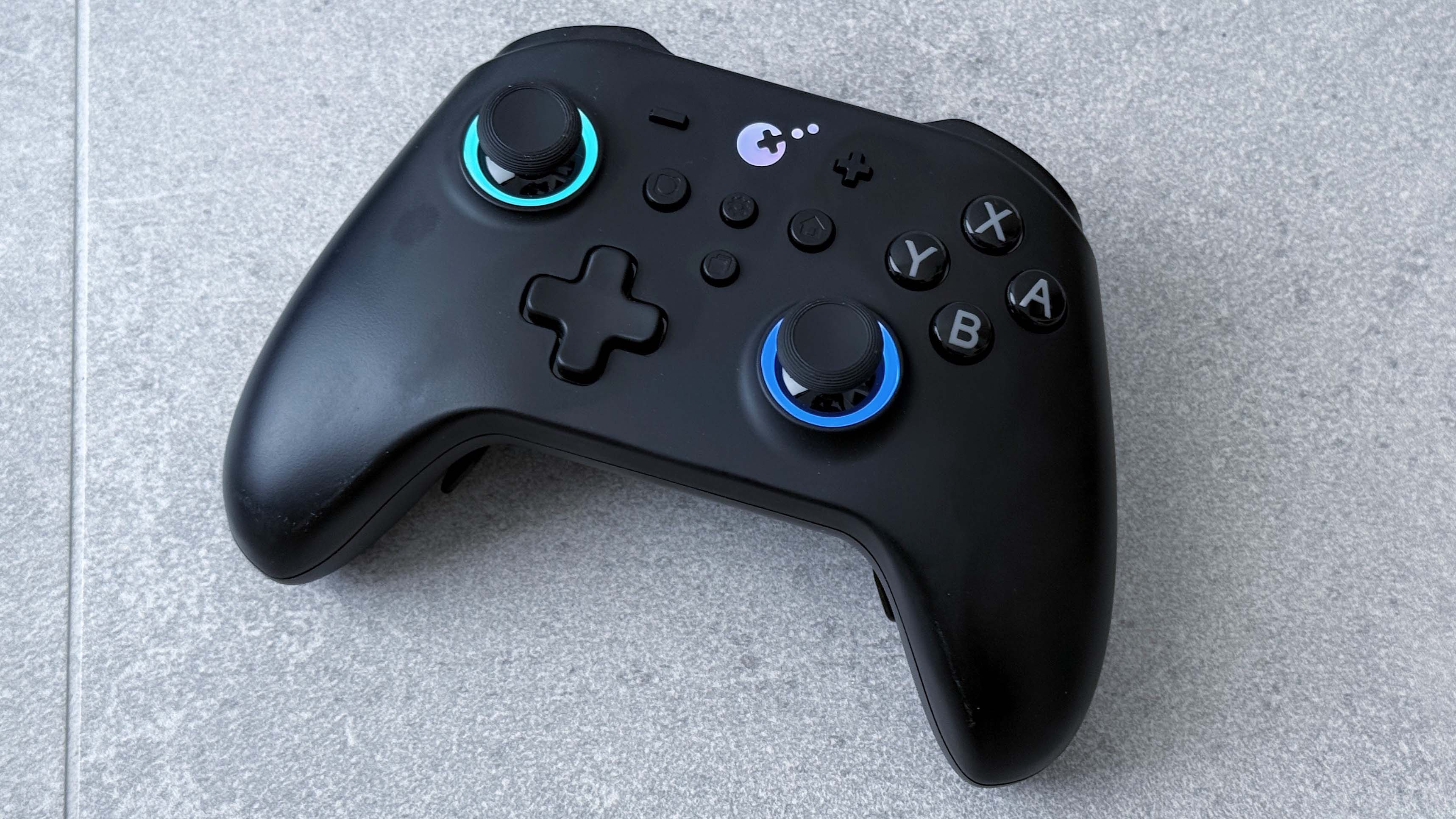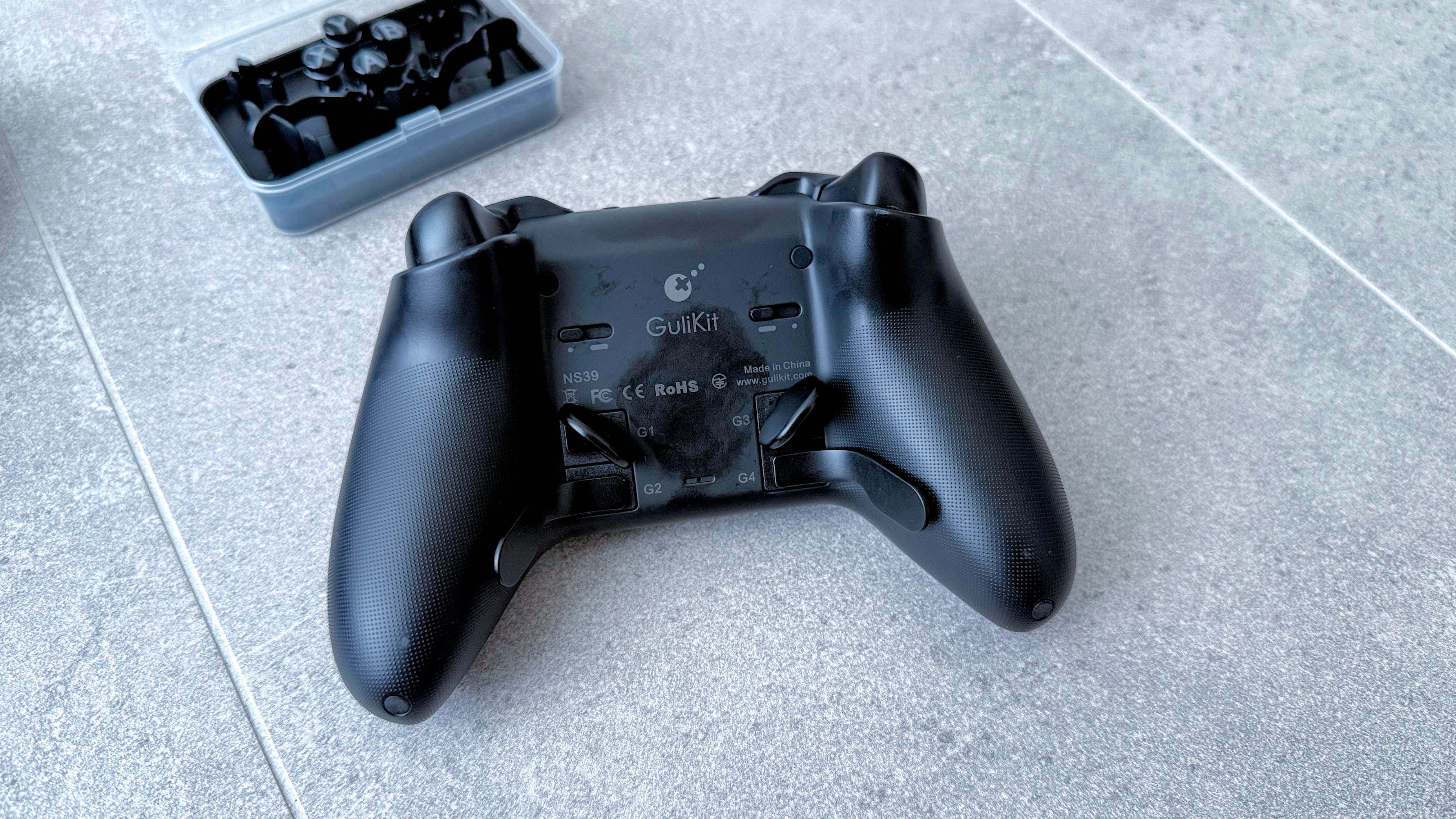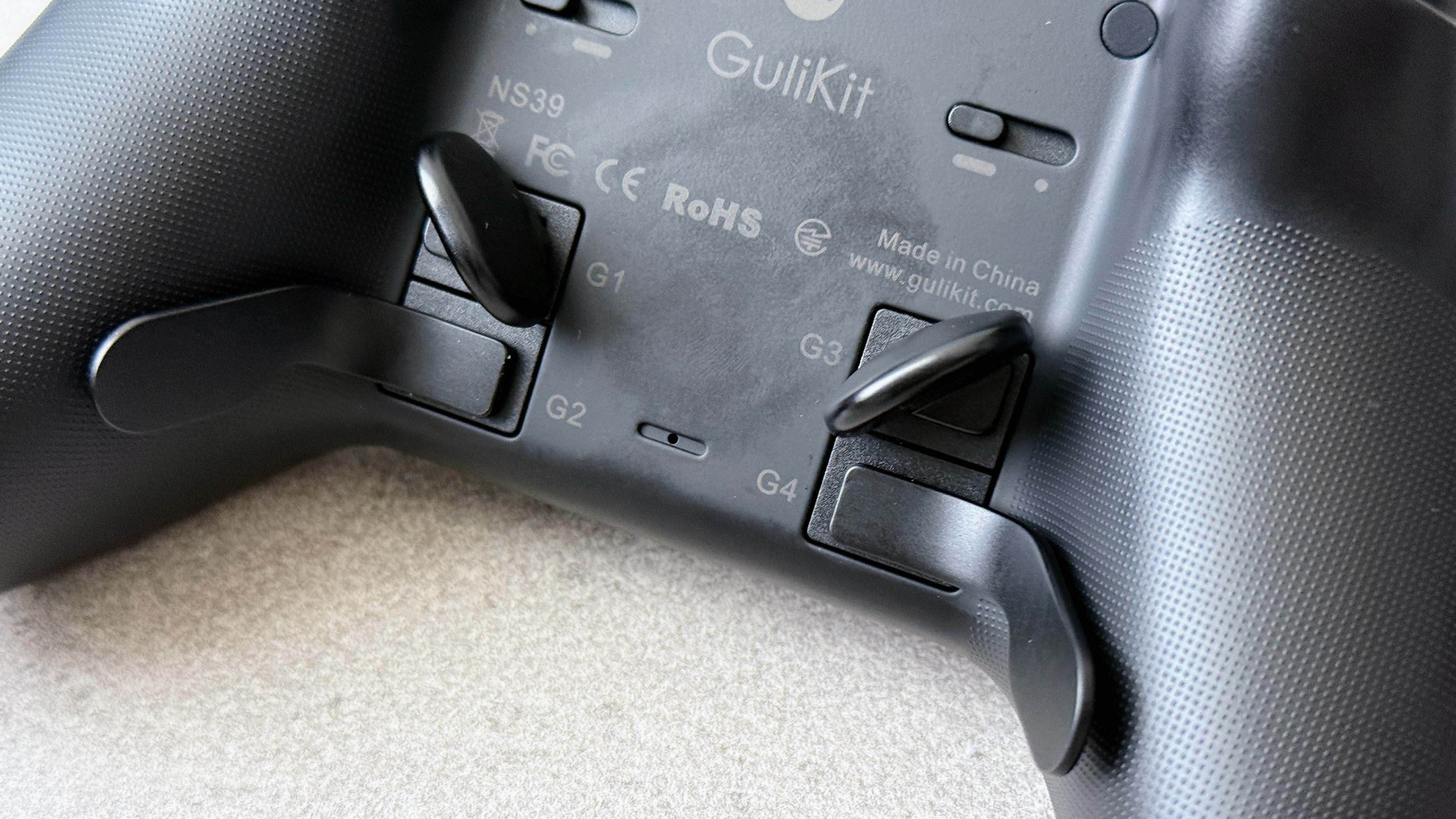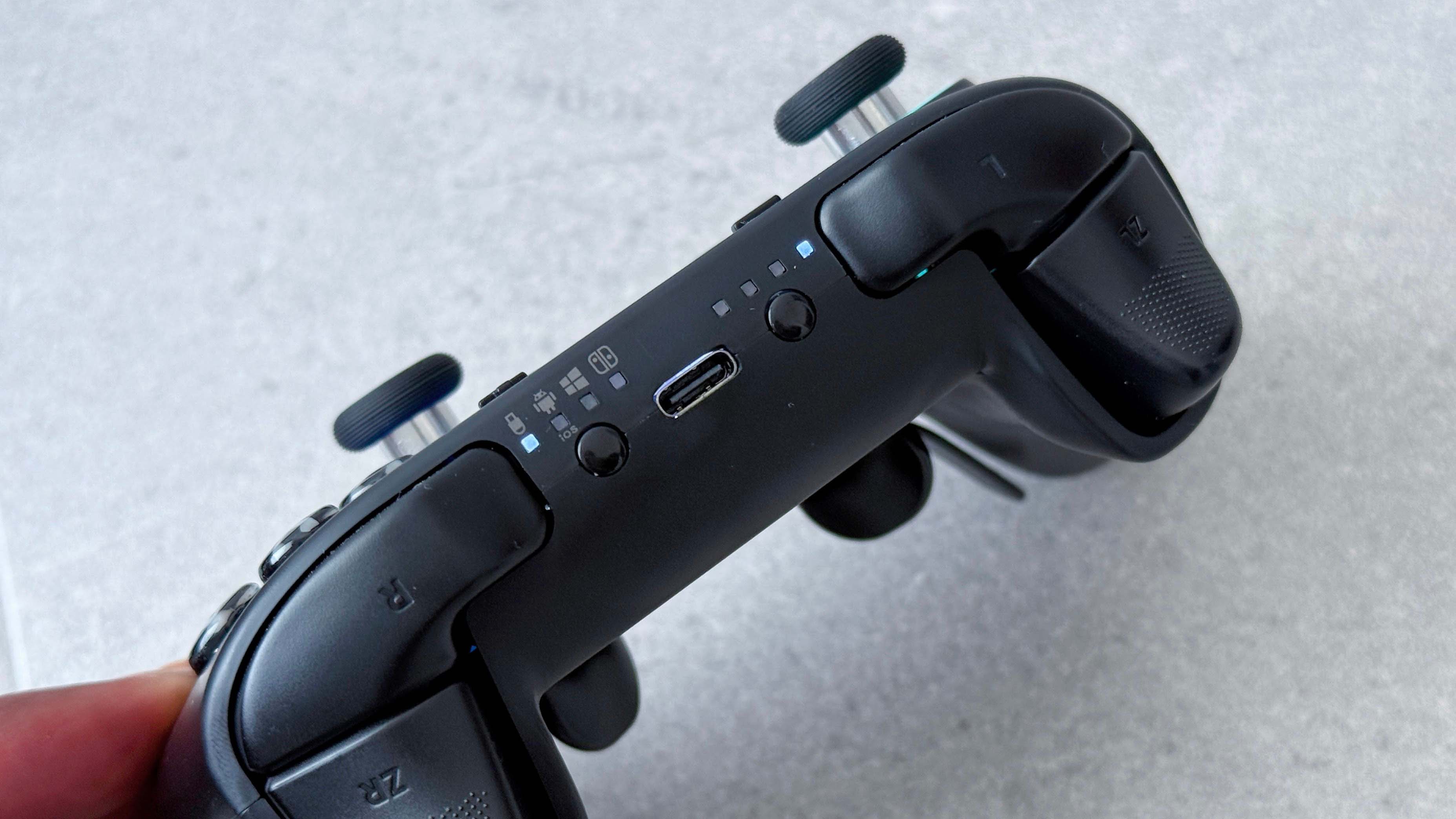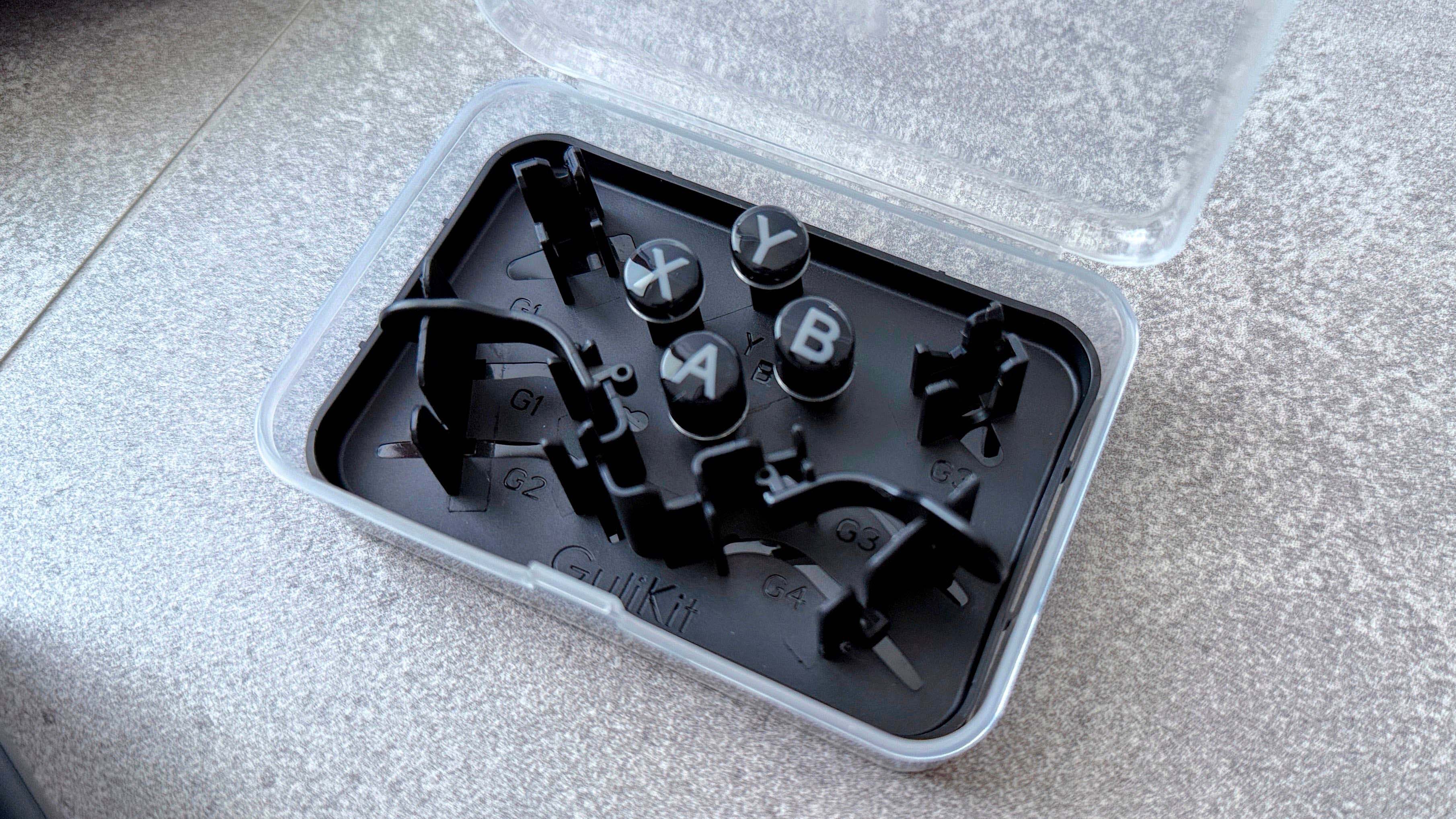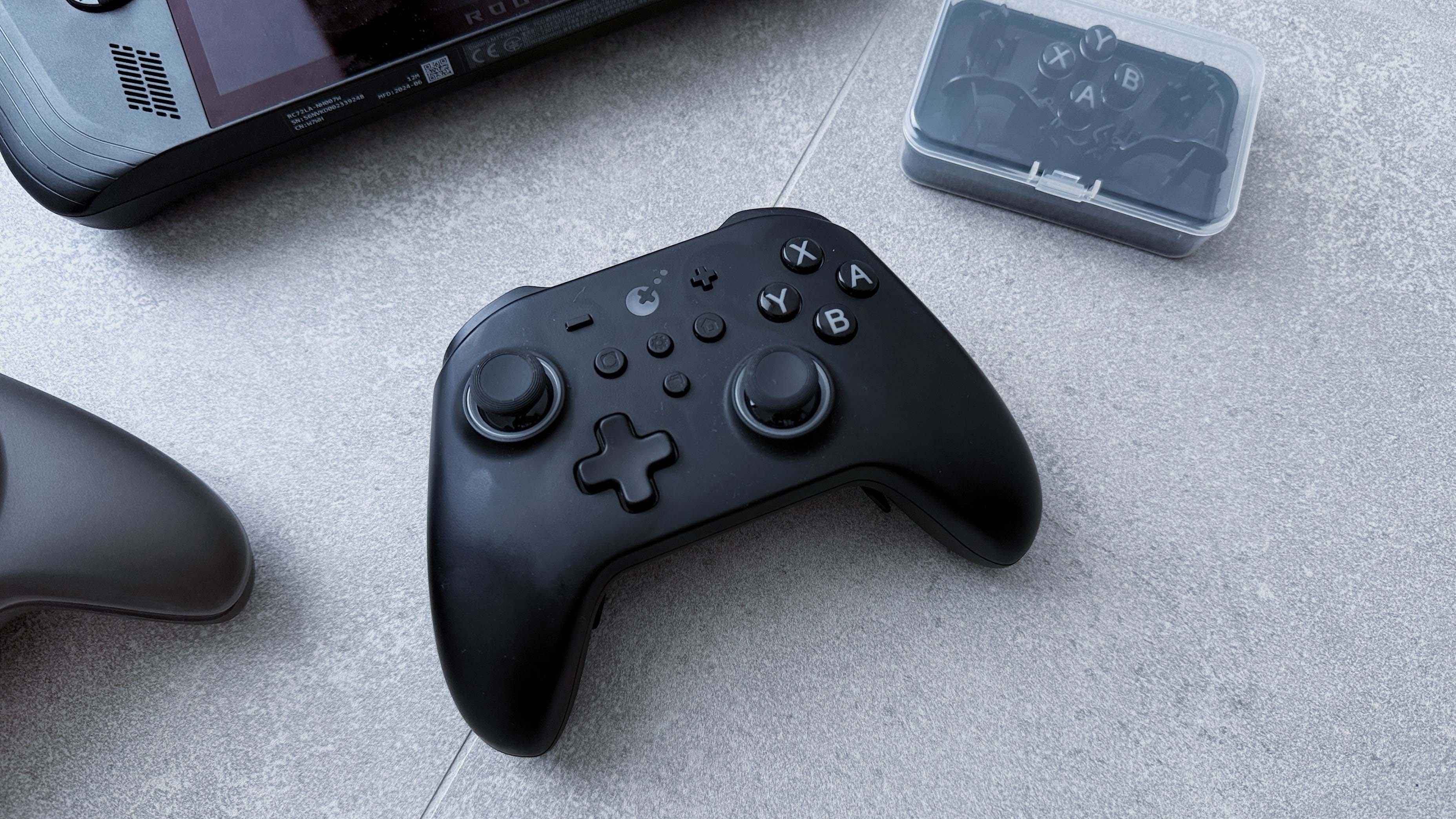
A budget pro controller for those who want to use all their fingers or maybe even none of them.
Once upon a time, pro gaming controllers were for the elite of the elite, costing several hundred dollars a piece. Giants like the Xbox Elite Series 2 and Razer Wolverine used to dominate the scene with unparalleled build, performance and innovative features. These days, you can get some truly impressive controllers—like the excellent PowerA OPS V3 Pro—that offer similar features for under $100. And now joining the fray is the Gulikit KK3 Max.
Retailing for an approachable $79 (£76, AU$140), the KK3 Max Pro brings impressive features such as Hall effect joysticks and triggers, swappable rear paddles, intriguing macro support, and versatile connectivity options.
Unlike many of its competitors, it works seamlessly with the Nintendo Switch but, curiously, is not compatible with Xbox or PlayStation consoles. I’ve been using it exclusively on my PC for the past couple of weeks, and while some features went unused beyond testing, I can confidently say it’s an impressive device.
The Gulikit KK3 Max’s design, however, is still reminiscent of an Xbox controller, enhanced with extra buttons, slots, and RGB lighting. Instead of an Xbox button, there’s a smaller backlit Gulikit logo (non-functional as a button), and the standard menu and start buttons are replaced with a “-” and “+”. Beneath these are four additional Gulikit buttons for customization.
The Hall effect joysticks feature RGB rings but are non-swappable and lack height adjustment. The D-pad and face buttons offer decent tactility without feeling mushy, though they don’t match the snappy feedback of Razer’s mecha-tactile switches. The ABXY buttons are replaceable, and the included puller makes swapping them easy. Their slightly larger size helps reduce missed inputs.
On the back, you’ll find trigger locks for switching between analog and digital clicks, along with four attachment slots for the six paddles included in the box. The spacing is more user-friendly, and the ability to choose specific shapes and placements makes this controller highly customizable compared to others with fixed rear buttons. Constructed from robust plastic, the KK3 Max Pro doesn’t quite exude a premium feel, but it doesn’t feel cheap either. The subtle textured grips could be grippier, more like those on the PowerA and the excellent Razer Wolverine V3 Pro controllers.
The Gulikit controller comes in black or white with matching paddles and ABXY buttons. However, the black seems to pick up odd stains that I couldn’t wipe off while trying to snap pics for this review. I’m not sure what’s going on but I never encountered this with other controllers. Furthermore, the plastic protective case that comes with the controller is really shady and I wouldn’t want to be seen carrying this anywhere. I really think Gulikit could have sprung for a hard case rather than this thing.
In terms of connectivity, the Gulikit KK3 Max supports 2.4 GHz wireless with up to a 1000 Hz polling rate on PC, Bluetooth for smart devices, and USB-C wired connections. It works with Windows PCs, laptops, Nintendo Switch, and Android devices but, as mentioned earlier, not with Xbox or PlayStation. Pairing with the 2.4 GHz dongle took some effort, as the documentation wasn’t particularly intuitive—a recurring issue when learning to use a lot of its features. I suspect many a user won’t fully grasp the power in their hands due to the vague and complex steps required for most of them. Even switching between connections is slightly convoluted.
That said, at least the battery life is solid, providing around 15 hours of play with RGB lighting active and nearly 28 hours with it off. I’m happy to sacrifice the lackluster RGB in favor of longevity and I suspect you will too. However, the KK3 Max doesn’t do a great job of indicating low battery. Rather than a clear warning, it just starts to disconnect intermittently until it doesn’t connect at all anymore.
Performance is where the KK3 Max Pro truly excels, however. Its Hall effect joysticks deliver precision and longevity, outclassing traditional potentiometer designs. Whether lining up a sniper shot or executing tight manoeuvres, the accuracy is tangible. Sensitivity can be adjusted directly on the controller, as there’s no accompanying software. Triggers and paddles are equally responsive, with the paddles proving easier to use than those on other pro controllers I’ve used. The ability to position them where you need and the unique squat paddle design make all four back paddles accessible—a rarity among controllers.
A Turbo Mode allows rapid button presses with a single hold, ideal for games requiring quick, repeated inputs. Auto Fire Mode enables continuous action without holding the button, perfect for sustained firing in bullet shooters. Auto Pilot Gaming lets you program action sequences for automatic execution, making repetitive tasks or complex combos a breeze.
✅ You want a seriously customizable pro controller on a budget: The Gulikit KK3 max will match the Elite Series 2 but at a mere fraction of the cost.
✅ You can make use of auto features: The KK3 Max has some advanced auto-play features and if you play the sort of bullet-hell games that might make use of that it will find itself at the top of your controller list.
❌ You want a simple life: If easier controls, a fine software experience, and the ability to store separate profiles for each of your main games is your bag, the KK3 Max might not be.
❌ You want a controller that can work on Xbox or PlayStation as well as your PC: With compatibility strangely missing the modern Microsoft and Sony consoles, that is something you’ll need to be comfortable with before you buy.
Gulikit claims the KK3 Max’s improved chipset and software enhance in-game self-correction, though its full potential is hard to gauge. Competitive gamers will appreciate the near-zero lag provided by the 2.4 GHz wireless and USB wired connections, as well as the 1000 Hz polling rate.
Remapping the paddles is straightforward, allowing on-the-fly adjustments without software. This is crucial during game play when quick changes are needed. However, the inability to save profiles will be a major drawback for players who frequently switch between games. The lack of dedicated software also means that deeper customization options are limited compared to premium alternatives like the Xbox Elite Series 2.
The Gulikit KK3 Max Pro stands out with its ergonomic design, durable build, and some rather unique advanced features. Hall effect joysticks, versatile connectivity, and performance-enhancing options make it a strong contender in the pro controller market. While it has some shortcomings—such as no software support, complex on-board customization shortcuts, and the absence of Xbox or PlayStation compatibility—these don’t overshadow its strengths. Especially since the KK3 Max costs just $80 which makes it one of the best PC gaming controllers and a fantastic buy for the budget conscious buyer.

